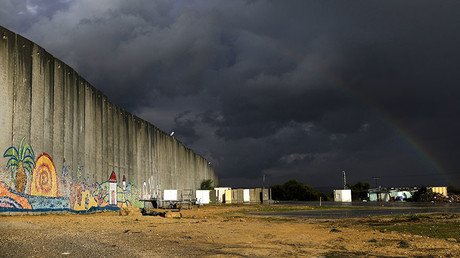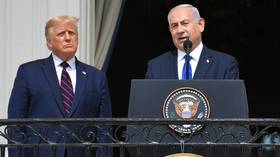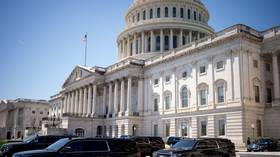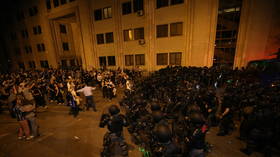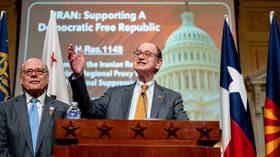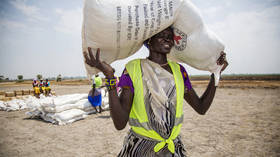UN report will compare ‘cost of Israeli occupation’ with slavery in US
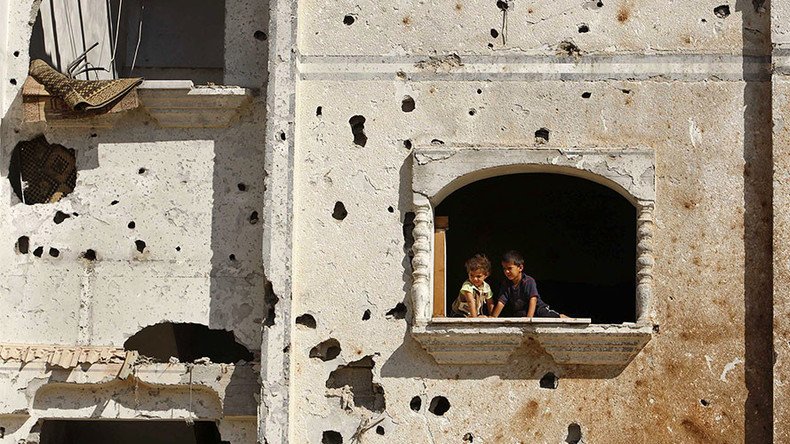
The UN Economic and Social Commission for Western Asia (ESCWA) has announced an upcoming report attempting to estimate the financial impact of the Israeli occupation of Palestine, looking at the example of slavery in the US.
The Lebanese-based United Nations body will soon publish a report that will evaluate “the cost of the Israeli occupation” over the Palestinian territories, looking at examples from apartheid in South Africa and slavery in America, the Times of Israel reported.
The new report could be published in June to mark the 50th anniversary of the Six-Day War, when Arab East Jerusalem was annexed under Israeli control in 1967. Israel also gained control of the West Bank, Gaza and the Golan Heights.
The new report is said to be a joint project by ESCWA and the United Nations Conference on Trade and Development (UNCTAD). Together they will attempt to estimate the financial impact of the five decades of the Israeli occupation.
The biggest challenge is to provide a legal framework for future reparations, which will consider examples from the South African apartheid regime and slavery in America, the Times of Israel reported.
“ESCWA and UNCTAD have just begun to work together on a project to calculate the cost of the Israeli occupation,” Nabil Abu-Dargham, the head of ESCWA’s communication and information unit, told the newspaper.
“This research project is complex and will draw from a number of disciplines,” Abu-Dargham added. “It is way too early to be decisive on the duration of research and the outcome.”
The Israeli Foreign Ministry said Tel Aviv was unfamiliar with the upcoming report, but rejected what it described as ESCWA’s attempts to “delegitimize Israel.”
“ESCWA continues its work, as seen in previous reports meant to delegitimize Israel, work that has been rejected not only by Israel but by other countries in the region and the UN’s secretary general. We continue to reject anti-Israel reports,” Michal Maayan, a deputy spokesperson at the Foreign Ministry in Jerusalem, told the Times of Israel.
“We reject the continuous efforts to delegitimize Israel by writing new reports regarding the situation in the area.”
Malcolm Hoenlein, the executive vice chairman of the Conference of Presidents of Major American Jewish Organizations, said he hopes the UN won't allow the report to be made public.
“We hope the United Nations will work to prevent its publication and distribution and posting it online,” he said, warning that the report would “be used by the Palestinians, either in negotiations or even going to an international court and making demands on Israel for compensation, saying, ‘Well, look, a UN agency evaluated it,'” he told the Times of Israel.
Hoenlein voiced doubts about whether the cost of Israel’s presence in the West Bank could ever be estimated.
“There’s no way that you can calculate that cost or even define it,” he said.
In December of last year, ESCWA said it aims to develop “an innovative methodology to accurately assess the direct and indirect cumulative costs of the Israeli occupation of Palestine.”
“This effort is unprecedented in terms of the depth and scope of the analysis. The methodology aims to accurately determine the multilayered cost of occupation across all sectors,” an ESCWA document said.
It also suggested assessing the costs to the victims of South Africa’s apartheid regime and mentioned proposals to calculate the monetary value of reparations to African Americans in the US.
Analyzing attempts to provide reparations for descendants of slaves in the US, the study said that “stakeholders have not identified an effective methodology, thus impeding the achievement of justice through reparations for victims of slavery.”
Another ESCWA report, published earlier this month, accused Israel “beyond a reasonable doubt” of being guilty of “policies and practices that constitute the crime of apartheid” against the Palestinian people.
Three days after the report's publication, ESCWA head Rima Khalaf resigned following pressure from the UN Secretary General. The paper itself was removed from the commission's website.
The report said that Israel is guilty of pursuing a policy of “strategic fragmentation” of the Palestinians as the “principal method” by which Israel imposes an apartheid regime.
It added that Israel is trying to dominate the 1.7 million Palestinians who are citizens of Israel by offering them inferior services, limited budget allocations and restrictions on jobs and professional opportunities. Some 300,000 Palestinian residents in East Jerusalem suffer discrimination from inadequate access to education, healthcare, and employment, in addition to residency and building rights.
“They also suffer from expulsions and home demolitions, which serve the Israeli policy of 'demographic balance' in favor of Jewish residents,” the report says.

